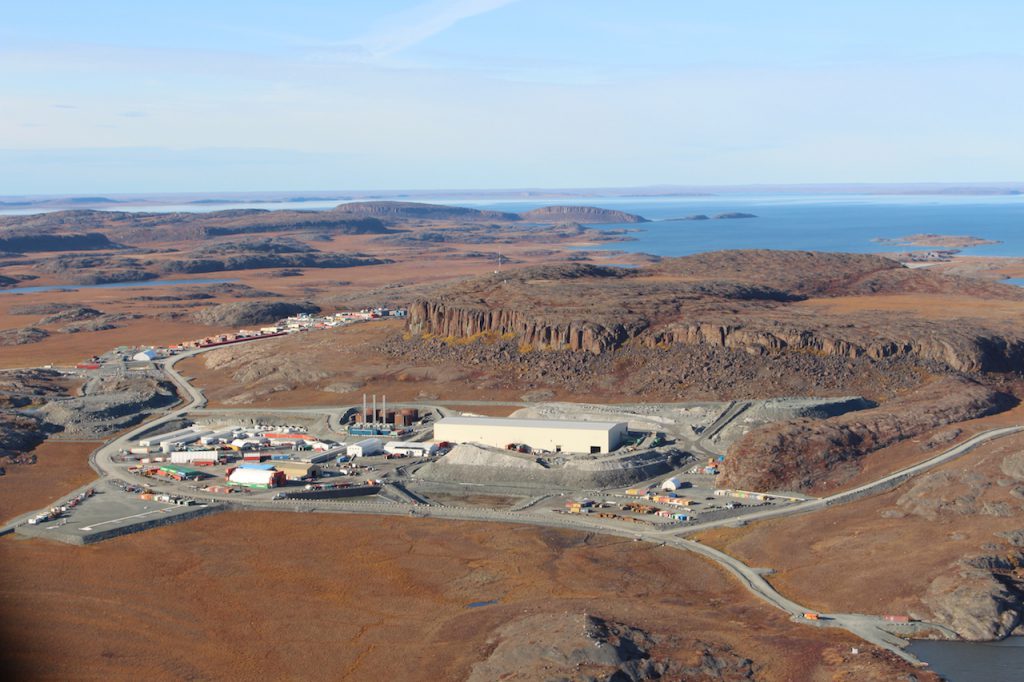Chinese miners’ deal frenzy seen stalling on regulatory hurdles

Growing scrutiny by mineral-rich Australia and Canada may cut short a deal frenzy led by China’s state miners and limit Beijing’s role in gold sector consolidation, bankers and analysts said.
Shandong Gold and Zijin Mining have driven a wave of acquisitions from the Canadian Arctic to South America to West Africa this year.
Canada and Australia have recently tightened restrictions on investment by state-backed firms, fearing economic dislocation caused by the coronavirus pandemic will make it easier to buy strategic assets. No specific countries have been named under the revised guidelines.
Chinese companies’ bids for Australian lithium companies are facing regulatory pushback
“The concerns are almost entirely (with) China,” said Gordon Houlden, a former Canadian diplomat with extensive Chinese experience who heads the University of Alberta’s China Institute.
The restrictions could also dampen appetite for deals in strategic minerals, bankers and analysts said.
Chinese companies’ bids for Australian lithium companies are facing regulatory pushback while last month China’s Goldsea Group abandoned its pursuit of gold miner Alta Metals after Australia’s Foreign Investment Review Board (FIRB) sought more time to review the deal.
FIRB’s decision is “highly disappointing,” Graeme Testar, director of PCF Capital Group in Perth, told Reuters. “This is gold, it’s not on the critical minerals list.”
The agency said last month it will screen all deals in which a foreign investor buys an interest in a “sensitive national security business” regardless of value. In April it blocked two investments by Chinese miners into the critical minerals sector, such as lithium and cobalt used in high-tech areas like renewable energy, electric vehicle batteries, and defence.
“Australia’s foreign investment framework is open, transparent and welcoming. We welcome investment from any country and in any sector of the economy,” a spokeswoman for Australia’s Treasury Department said.
Hurdles
Some bankers are concerned that FIRB could block China’s Tianqi Lithium from selling part of its 51% stake in Australia’s Greenbushes, the world’s largest lithium mine, to a Chinese buyer.
“(Chinese buyers) continue to show interest and are willing to face the increased FIRB hurdle,” said Sherif Andrawes, BDO’s global head of Natural Resources, speaking about the sector in general.
“One view is that the extra hurdle for foreign buyers has helped Australian acquirers,” he said.
Canada cited amplified risks to economic and national security and said all investments by state-owned firms would face enhanced scrutiny. The department of Innovation, Science and Economic Development Canada, which oversees foreign investment, declined to comment beyond the government’s stated policy when contacted by Reuters.
China’s miners are scouting for deals due to limits on domestic exploration, David Bo, a former manager at Ivanhoe Mines, said.
About 60% of the resource-rich Xilingol League in China’s Inner Mongolia region is off-limits to miners due to environmental protection measures, adding further impetus for Chinese miners to make deals, a Beijing-based mining executive told Reuters. The executive declined to be identified as his firm was in the process of bidding for an overseas asset.
Shandong Gold is awaiting approval for its acquisition of Toronto-listed TMAC Resources, which operates a gold mine in the Canadian Arctic territory of Nunavut. TMAC shareholders approved the deal last month.
“It’s still our hope that Canada will … provide a fair, just and nondiscriminatory environment for Chinese companies to invest and operate in Canada,” Chinese ambassador to Canada Cong Peiwu told Reuters in a June 11 interview.
But the Arctic location of TMAC’s Hope Bay mine could raise concerns, lawyers and security analysts said.
There is “a very high chance” Canada blocks the acquisition, said Jonathan Miller, deputy director and a senior fellow at the Ottawa-based Macdonald-Laurier Institute.
Tensions sparked by the arrest of Huawei Technologies CFO, Meng Wanzhou, escalated after Beijing in June charged two detained Canadian citizens with suspected spying.
“From that perspective I think it’s going to be very challenging,” Miller said.
(By Jeff Lewis, Melanie Burton, Tom Daly and Steve Scherer; Editing by Denny Thomas and Matthew Lewis)
{{ commodity.name }}
{{ post.title }}
{{ post.date }}




Comments
BOB HALL
Investment by foreign companies is welcome. investment by foreign governments is folly. We in Canada have enough public meddling by our own governments.